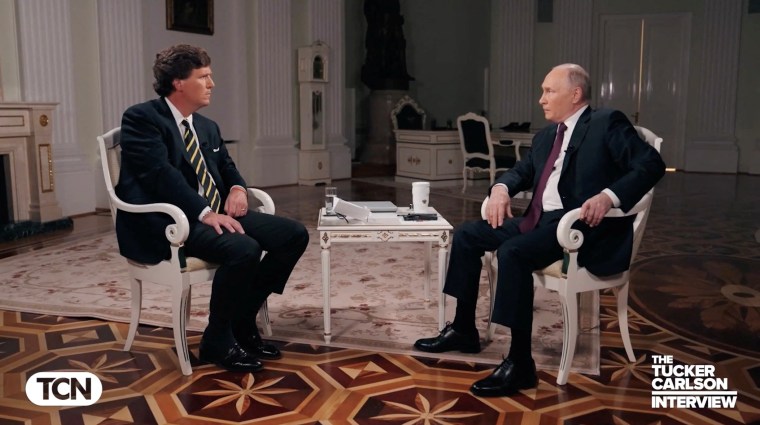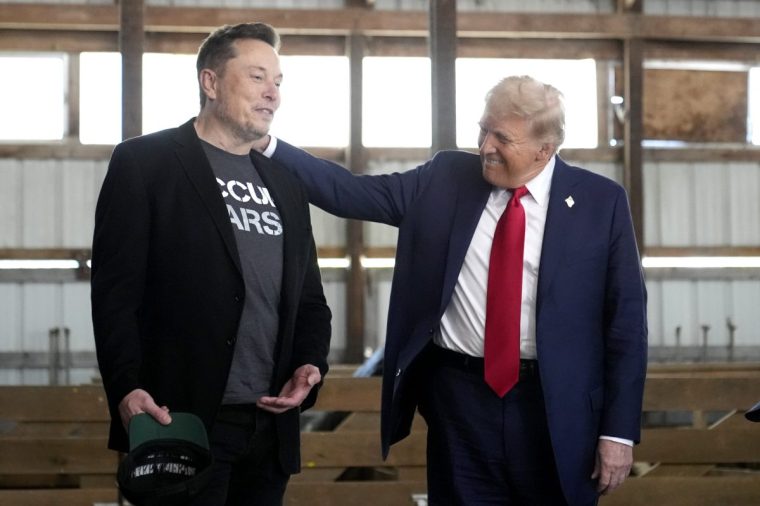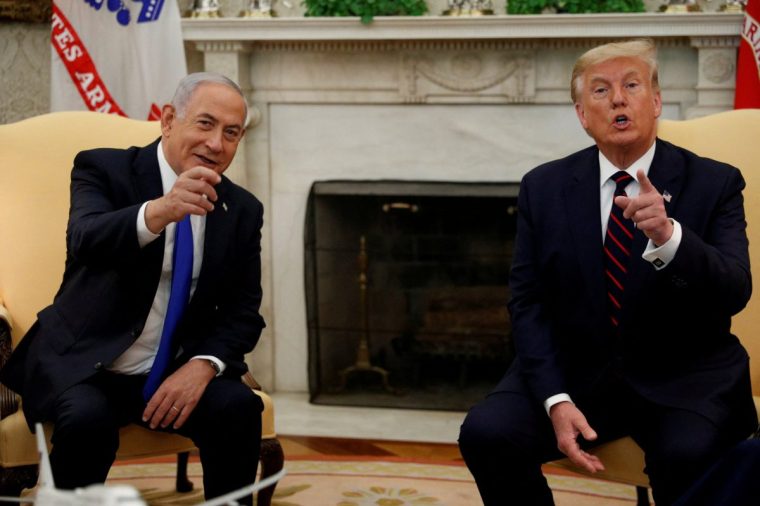There is a storm brewing in the Maga foreign policy world, one that has already prompted Donald Trump to seek assistance from some of his closest allies, including Elon Musk, to avoid an early and potentially damaging rift.
The issue revolves around what seems to be the sole significant wedge between the president-elect’s emerging cabinet, elected Republican allies, and popular base on the global stage: how Trump should approach Iran.
Musk met Iran’s ambassador to the United Nations on Monday, shortly after being named one of the heads of the newly created Department of Government Efficiency. The meeting, reportedly requested by Musk, focused on strategies to de-escalate tensions between Iran and the United States, according to The New York Times.
Musk’s fledgling mediation efforts – first seen last week when Trump included him on a call with Ukrainian President Volodymyr Zelensky -appear critically needed regarding Iran.
On most other major foreign policy issues, the three key factions of Trump’s incoming presidency – “America First”, Peace Through Strength Republicans, and outright war hawks – are relatively aligned.
For instance, there is general agreement on reducing support for Ukraine, ending the war (even under unfavourable terms for Kyiv), and exploring whether Vladimir Putin could be persuaded to join an anti-woke, pro-Christian bloc with the United States. This unity extends to another key area of consensus: the need for maximum pressure against the Chinese Communist Party. Some Maga influencers have even suggested an alliance with Putin’s Russia to contain Beijing, mirroring the Nixon-Mao strategy against Moscow in the 1970s.
Across other issues – opposing Venezuela and Cuba, rejecting climate change policies, undermining democracy and human rights initiatives, targeting drug cartels and terrorism, and critiquing the UN system – Trump can count on his coalition’s steadfast support.
Withdrawing the small numbers of US troops currently in Syria and re-engaging his dear friend, North Korean leader Kim Jong-un, will surely raise some hackles with establishment Republicans (read: not that important anyway), but Trump will likely be given a lot of leeway on both issues to at least try his co-option approach for defanging dictators via a goldplated, US insured lifeline. His team has even managed to figure out how to make his own preferred war hawks not come off completely as the disparaged neocons of the George W vBush and Iraq war era: If Peace Through Strength doesn’t work, they profess, then unrestrained firepower or targeted assassinations against the guilty surely will, but next time without all the expensive and difficult nation building and democracy promotion.
Iran, however, is a different story. Influential Maga figures such as Tucker Carlson have long opposed a direct war with Iran, with Carlson remarking in The American Conservative last month, “It’s truly shocking that people, especially on the right, still believe that Iran is our greatest national security threat.”

Days before the election, vice-president-elect JD Vance told the Tim Dillon Show: “America’s interest is sometimes going to be distinct [from Israel’s]… Sometimes we’re going to have overlapping interests, and sometimes we’re going to have distinct interests. And our interest very much is in not going to war with Iran. It would be a huge distraction of resources. It would be massively expensive to our country.” Trump’s overall platform of restoring peace to the war-torn world is also routinely cited by many of his supporters and 5 November voters who expect him to reduce, not increase, violent military confrontations in the world.
While there are a motley assortment of reasons why such voices oppose war with Iran – from longstanding criticism of neoconservatives as warmongers and profiteers, to the potential chaos and costs of yet another Middle East conflict – these positions are still largely associated with Trump’s popular base and media personalities. Beyond Vance, the only security-related cabinet pick aligned with this stance is Tulsi Gabbard, nominated for the role of director of national intelligence. In the Senate, a small contingent of Trump-aligned Republicans, most notably Rand Paul, have echoed similar sentiments.
Nearly all of Trump’s other cabinet picks, substantial numbers of elected Republicans, and a heavy-hitting set of other influential media supporters have voiced strong support for an aggressive, militarised approach to Iran right out of the gate – well beyond the “maximum pressure” policy that led Trump to tear up the Iran nuclear deal in his first term and assassinate Iranian general Qassem Soleimani in 2020.

Musk himself has gone on the record several times since Hamas’s attack on 7 October last year to castigate Iran and its allies Hamas and Hezbollah, signalling that military power needs to be brought to bear against Tehran if they don’t change course immediately. At a Trump rally last month, he told the crowd, “They [the Iranian government] want to kill Americans too. Israel is referred to as the ‘little Satan’ and America, we are the ‘big Satan’, that’s what the Ayatollah calls us… Those who want to kill more Israelis need to be stopped. They should either be killed or incarcerated.”
Given Musk’s rhetoric, not to mention his previous attempts to deliver the Starlink internet service to Iranians opposed to their government, it is curious, to say the least, that Trump saw fit to send him last Monday for a discussion with Iranian officials about negotiating a settlement. But the president-elect probably knows that any such mediation is likely to be in vain anyway. The best offer that Trump and his main Middle East booster, Israel’s Prime Minister Bibi Netanyahu, can offer Iran – cut regional alliances with Hamas, Hezbollah and the Houthis in Yemen and radically reduce Iran’s nuclear and ballistic missile programme – is very likely a non-starter with Tehran since it would amount to near capitulation to longstanding US-Israeli demands.

Netanyahu, whom Trump has recently pressured to take out Iran’s nuclear facilities, holds a pivotal role in resolving this foreign policy divide. Many in Trump’s circle, as well as Israeli leadership, favour immediate military action against Iran. For the president-elect, unleashing Netanyahu on Iran before taking office in January 2025 may seem like the cleanest solution. Such a move would degrade Iran’s capabilities and potentially give Trump more leverage, allowing him to claim he inherited another Middle East conflict from Joe Biden.


'President Musk' is flexing his muscles and revealing how weak Trump is